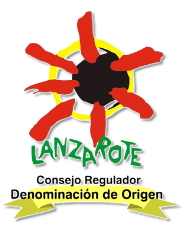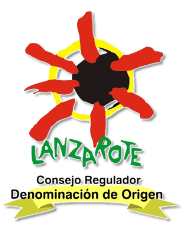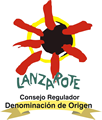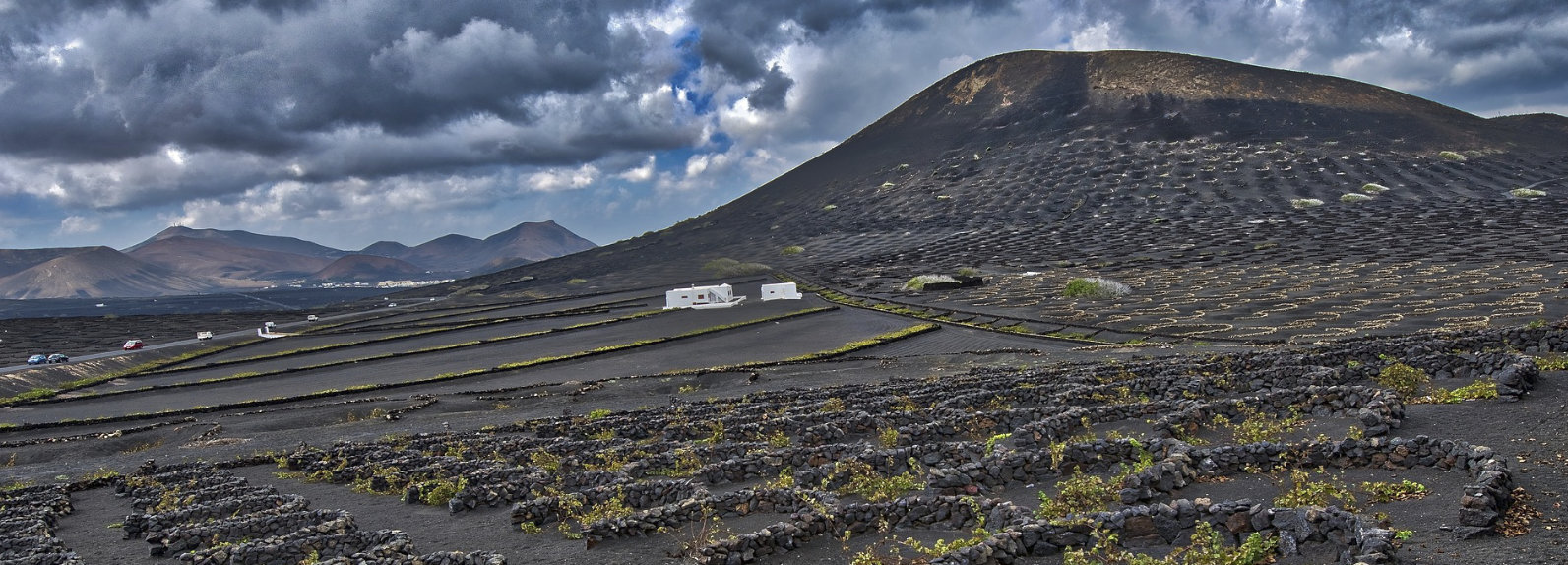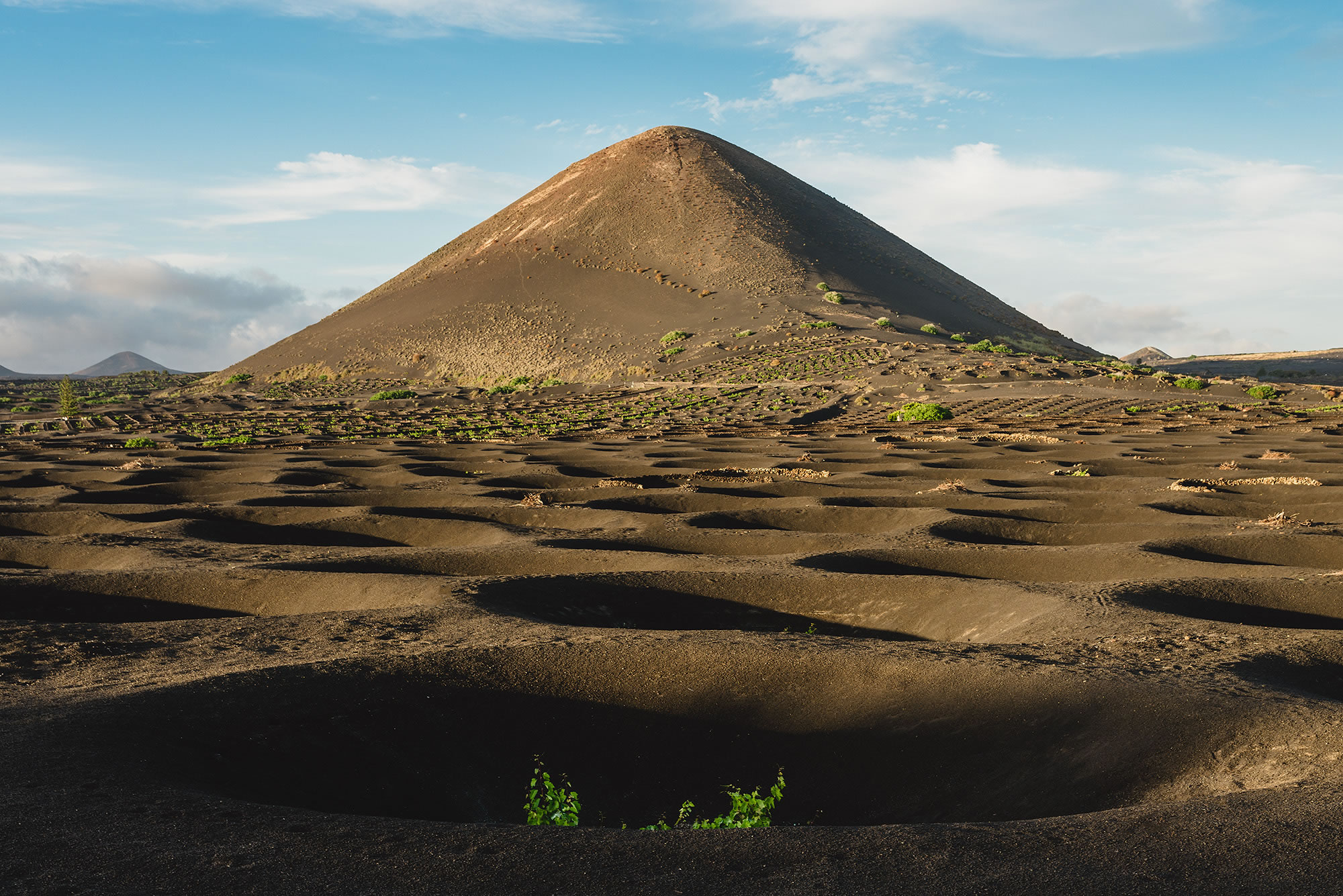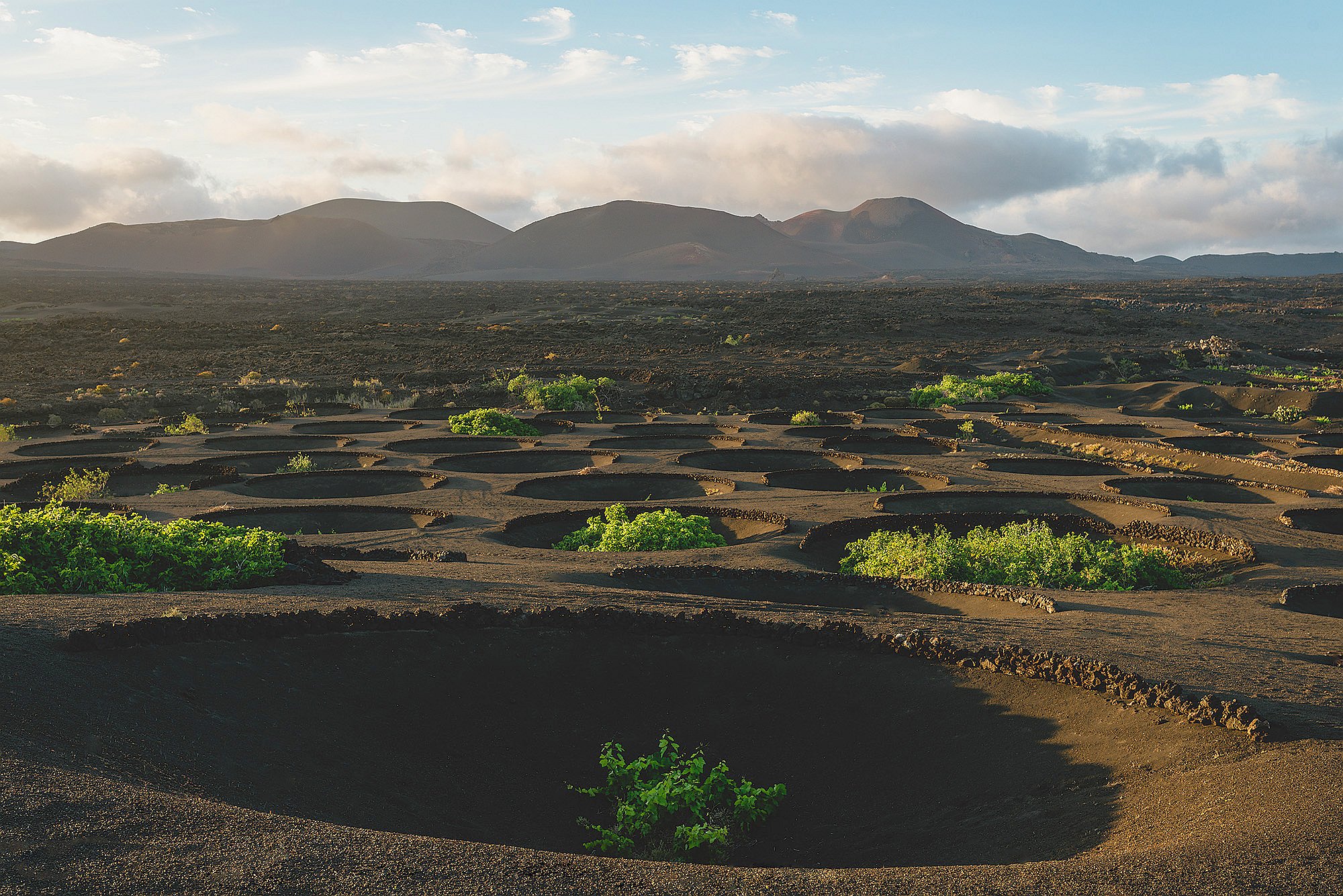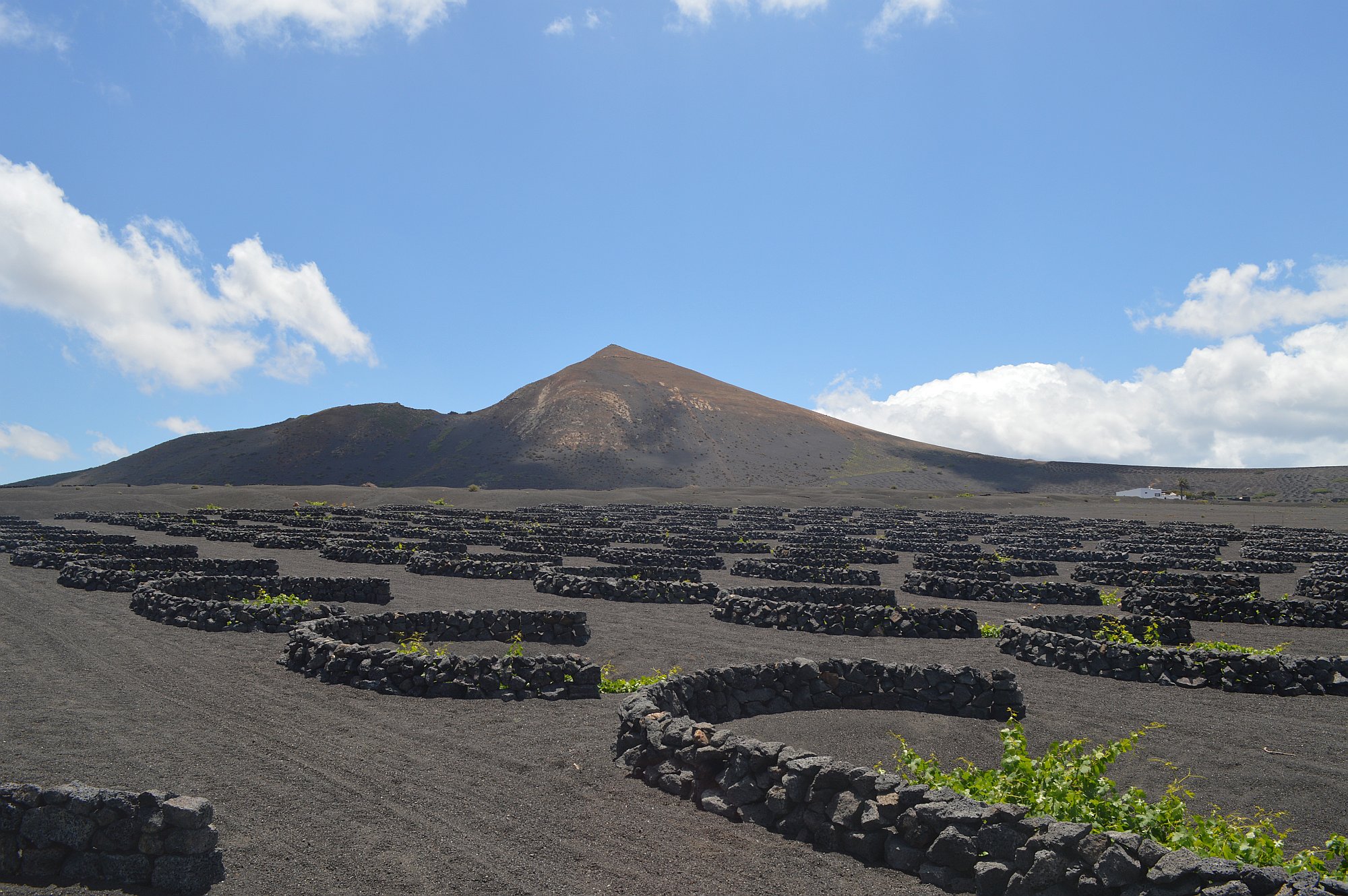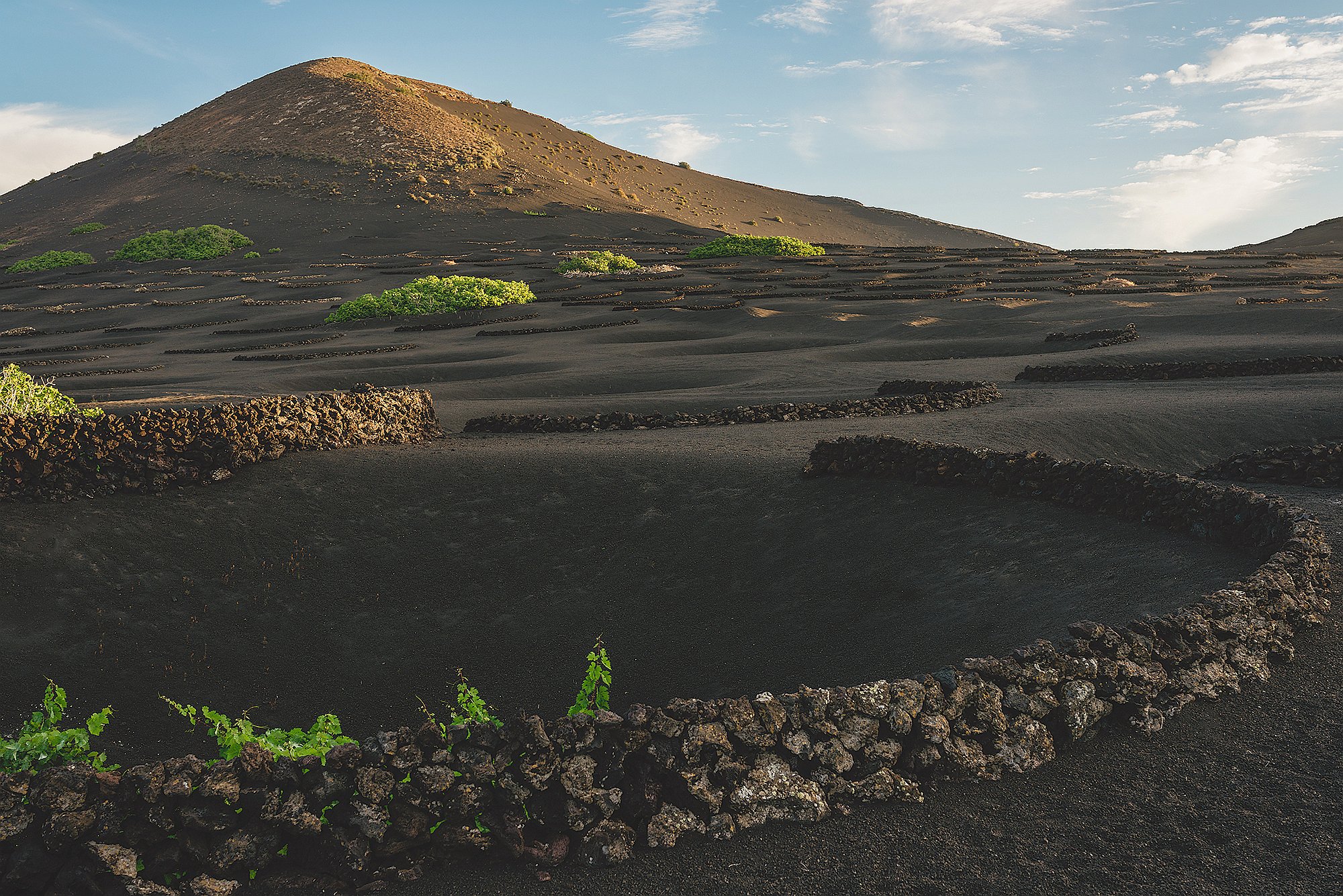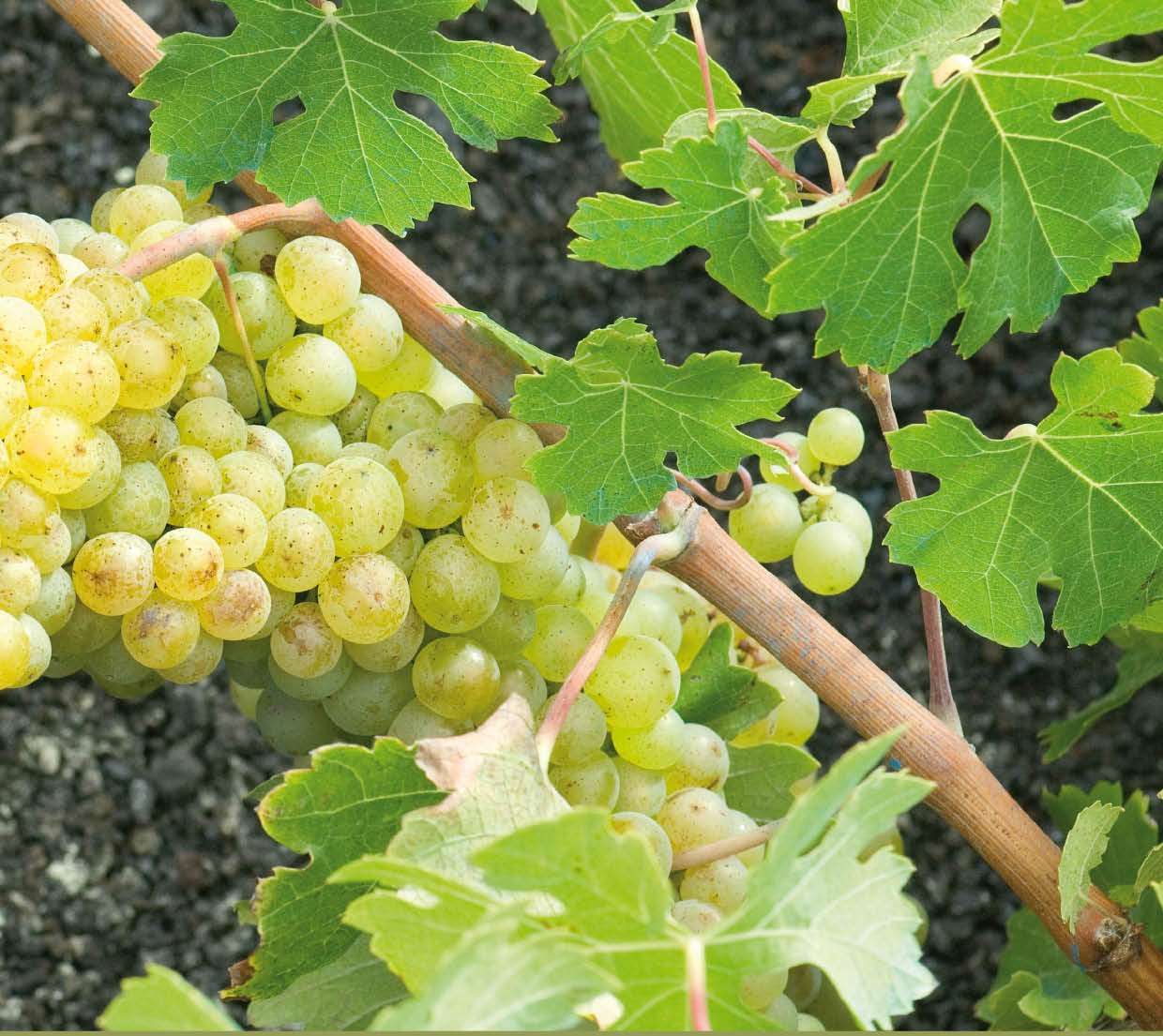Wines with designated origin Lanzarote are characterized by having a marked volcanic-mineral taste perfectly balanced with the relatively high acidity they offer
There is great diversity of wine grapes on the island. White grapes predominate, with the volcanic malvasia being the most commonly grown. This is an indigenous variety that is used in the majority of wines with designated origin Lanzarote, perfectly adapted to the soil and climate conditions of the island and in which the dual acidity/volcanic-mineral taste by extension determine the distinguishing feature of these wines.
There is no doubt–in a sub-desert climate, like the one in Lanzarote, sharpened by the scorching Saharan winds and volcanic soil–the promotion of viticulture as a living being requires acuity, tenacity, and originality. That’s why Lanzarote is home to the most unique vineyards in Spain, some with vines buried in a funnel shape so that the roots find fertile soil, others protected from winds by semi-circular walls of volcanic rock. All of them are cushioned by a layer of volcanic ash (picón or lapilli), so that it retains the hygroscopic moisture.
This method of growing allows the vines to survive in volcanic soil and has allowed for the presence of an indigenous grape variety, the volcanic malvasia, and the adaptation of the different wine grape varieties that give the wines the volcanic-mineral/acidity balance that is perfectly achieved and constitutes the distinguishing feature of wine from Lanzarote.
